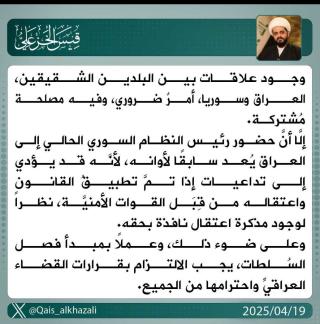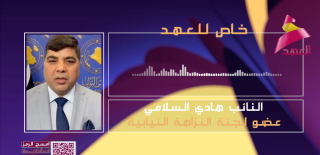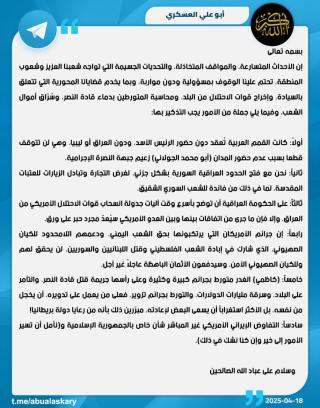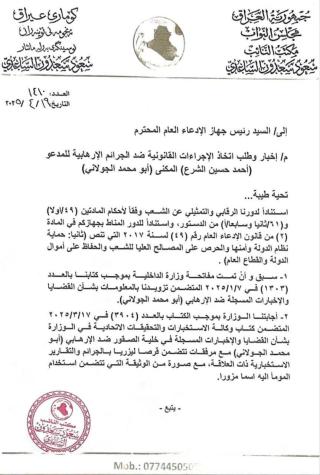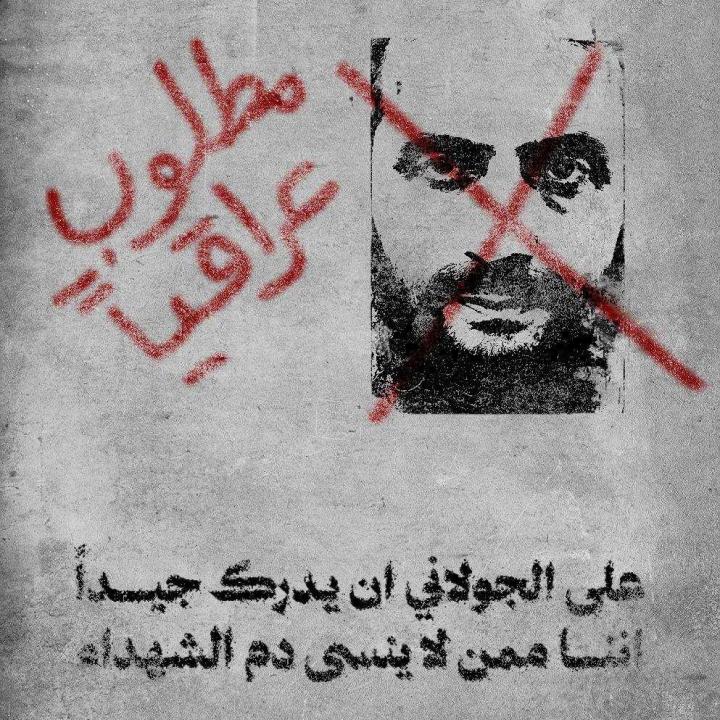
Sudani's Invitation to Ahmed al-Sharaa Triggers Militia Backlash

Iraq's self-styled "resistance" had an allergic reaction to the idea of Syria's new president setting foot on Iraqi soil, putting Prime Minister Sudani at odds with some of his terrorist supporters.
On April 16, Prime Minister Mohammed Shia al-Sudani confirmed that he would be inviting interim Syrian president Ahmed al-Sharaa to the May 17 Arab League summit in Baghdad. Prior to leading the military campaign that toppled the Assad regime in December, Sharaa went by the name Abu Muhammad al-Jolani during a years-long career as a jihadist in Iraq and Syria. Under a different name, he also spent 2005-11 in the U.S. detention facility Camp Bucca. By any name, he is a highly controversial figure among elements of Iraq's self-styled muqawama (resistance). Some militia figures feel personally victimized by his past jihadist activity, while others consider him an obstacle to their activities in Syria. They also feel obligated to back their Iranian patron's opposition to the man who ousted a former client regime in Damascus.
Predictably, then, Sudani’s statement sparked immediate backlash from various segments of the muqawama and their affiliated media outlets, putting the prime minister at odds with some of the terrorist and militia groups that underpinned his rise to the premiership. Asaib Ahl al-Haq (AAH) took a leading role in denouncing the invitation. AAH chief Qais al-Khazali issued a short statement on April 19 warning that Sharaa might get arrested if he enters Iraq: "The presence of the current Syrian regime’s president in Iraq is considered too early, because it may lead to consequences if the law is enforced and he’s arrested, given that there is an outstanding arrest warrant against him...In accordance with the principle of separation of powers, the decisions of the Iraqi judiciary must be respected and upheld by all parties” (Figure 1). The final part of his statement appears directed at Sudani, making it clear that any attempt to prevent Sharaa's arrest upon entry to Iraq will not be tolerated.
The statement reflected a broader push by the muqawama and their affiliates to use legal means to block Sharaa’s visit. Hadi al-Salami, a member of parliament known for his ties to the muqawama, told AAH’s al-Ahd TV that he and other legislators, along with families of terrorism victims, would file lawsuits in Iraqi courts against Sharaa: “Jolani targeted and killed my elder brother north of Babil in 2005” (Figure 2). (Notably, this was the year Jolani was taken into U.S. custody.)
Kataib Hezbollah (KH) has expressed discontent with the invitation as well. On April 18, in his first public statement since October, KH security chief Abu Ali al-Askari conveyed the group’s preference for proceeding without Sharaa’s participation at the upcoming summit: "Arab summits used to be held without the presence of President Assad, without Iraq, Libya, and they will not stop if Abu Mohammed al-Jolani, the leader of the criminal al-Nusra Front, does not attend" (Figure 3).
Although Askari’s tone was less confrontational than Khazali's, other KH members have nonetheless taken concrete steps to obstruct Sharaa’s potential entry. On April 19, the head of KH's Hoquq parliamentary bloc, Saud al-Saadi, sent an official letter to the attorney-general informing him of the necessity to take legal action against Sharaa if he comes to Iraq. (Figure 4).
Kataib Sayyid al-Shuhada also joined the chorus of groups criticizing the invitation. Falih al-Khazali, a member of parliament affiliated with the militia, voiced his opposition on social media, tweeting: “Iraq is a hub for Arab dialogue, [but] we do not accept that Baghdad should be a hub for the terrorist al-Jolani. The blood of martyrs has not dried yet” (Figure 5).
Another MP with ties to the muqawama, Yousif al-Kilabi, took action inside parliament itself. On April 20, he managed to secure the support of fifty-eight MPs for his request to withdraw the invitation extended to Sharaa.
Indeed, there appears to be a cross-muqawama consensus aligning with the Iranian regime’s stance on relations with the new Syrian government. In December, just days after the Assad regime was ousted, Supreme Leader Ali Khamenei stated: “The Syrian youth...must stand with firm determination against those who have orchestrated and brought about this insecurity and God willing, they will prevail over them.” Since then, Tehran's rhetoric toward Sharaa's interim government has grown increasingly aggressive, and Iran's proxies in Iraq have clearly adopted the same approach.
AAH seems to have an additional incentive to aggressively lead this campaign—namely, it now considers Sudani an important electoral rival. In its view, the prime minister and one of his top allies—Faleh al-Fayyad, chairman of the Popular Mobilization Forces—are engaged in a head-to-head contest with AAH for future control over the PMF.
